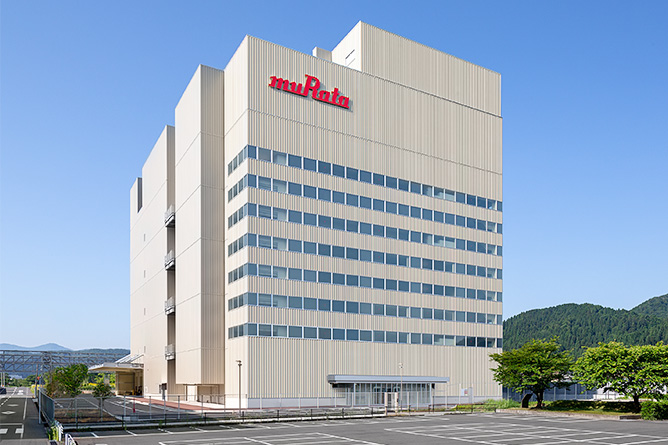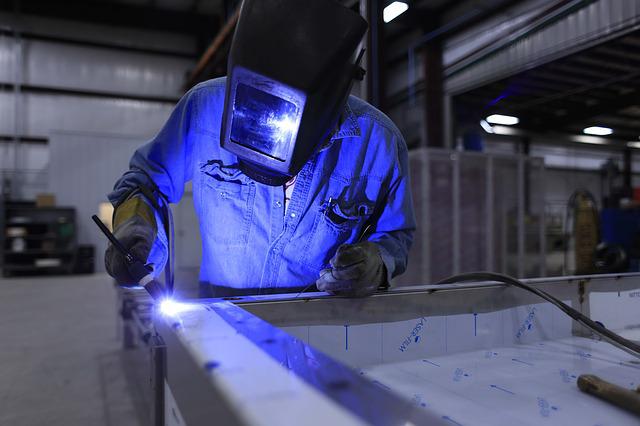
Dallas has a thriving, large and growing manufacturing industry. The city has a world-class reputation for making everything from aerospace components to consumer goods and computers to life-saving medical devices. Dallas is home to major high-tech firms such as Texas Instruments or Lockheed Martin.
Dallas Fed, the agency that conducts the monthly factory survey in Texas, estimates manufacturing employment increased by 3.5 percent in 2016, slightly less than the rate of economic growth. About 2.2m jobs are supported by manufacturing, which includes those of various related industries.
Computer and Electronic Products Manufacturing is a significant subsector within the Texas manufacturing sector, contributing about $28.7 Billion in Gross State product in 2015 (the latest data available on GSP). The Brookings Institution considers computer and electronic products manufacturers to be advanced manufacturing industries because they have a high share of workers with higher levels of scientific knowledge than the national average.

Texas is home to a large manufacturing sector that includes machine tool and machinery manufacturing. The subsector includes producers of mining, agricultural, construction and industrial machines. According to TWC, this subsector supports about 88,000 manufacturing positions in Texas. Another 117,000 indirect jobs are supported by it.
This highly-industrialized subsector supports an enormous number of jobs across other sectors. It contributes around $11.3 billion annually to the economy and pays an average salary of approximately $98,000. It employs a significant number of engineers, scientists and technicians.
Fabricated metal manufacturers produce a wide variety of products ranging from cutlery up to shipping container. This subsector is particularly strong in the Houston area, where it employs approximately 118,000 Texans.
TWC estimates that this subsector suffered a few job losses during the oil price crash in 2015. However, it has rebounded strongly in 2016. The subsector is comprised of manufacturers of boilers, valves and heat-exchangers for the chemical and petrochemical industries along upper Gulf Coast.

This category includes, in addition to the fabricated metal industry, automotive parts as well as equipment and components used in aerospace or railroad rolling stock. Brookings reports that these industries are among the most advanced in terms of spending on research and technology per worker.
You should know what your value is, whether you are an established veteran in manufacturing or just starting out. This will help you to enhance it through the use of the appropriate skills. It is best to work with a company that offers contract manufacturing services. They can offer you specialized expertise and services such as 6S and Lean manufacturing. These services can improve your company's bottom line and help it become more competitive.
FAQ
What is the role of a production manager?
Production planners make sure that every aspect of the project is delivered on-time, within budget, and within schedule. They also ensure the quality of the product and service meets the client's requirements.
What makes a production planner different from a project manger?
The primary difference between a producer planner and a manager of a project is that the manager usually plans and organizes the whole project, while a production planner is only involved in the planning stage.
What does the term manufacturing industries mean?
Manufacturing Industries are those businesses that make products for sale. Consumers are the people who purchase these products. This is accomplished by using a variety of processes, including production, distribution and retailing. These companies produce goods using raw materials and other equipment. This covers all types of manufactured goods including clothing, food, building supplies and furniture, as well as electronics, tools, machinery, vehicles and pharmaceuticals.
Is there anything we should know about Manufacturing Processes prior to learning about Logistics.
No. It doesn't matter if you don't know anything about manufacturing before you learn about logistics. It is important to know about the manufacturing processes in order to understand how logistics works.
How can I find out more about manufacturing?
Hands-on experience is the best way to learn more about manufacturing. You can also read educational videos or take classes if this isn't possible.
What are the responsibilities for a manufacturing manager
Manufacturing managers must ensure that manufacturing processes are efficient, effective, and cost-effective. They should be aware of any issues within the company and respond accordingly.
They must also be able to communicate with sales and marketing departments.
They should also be aware of the latest trends in their industry and be able to use this information to help improve productivity and efficiency.
Statistics
- Job #1 is delivering the ordered product according to specifications: color, size, brand, and quantity. (netsuite.com)
- According to a Statista study, U.S. businesses spent $1.63 trillion on logistics in 2019, moving goods from origin to end user through various supply chain network segments. (netsuite.com)
- It's estimated that 10.8% of the U.S. GDP in 2020 was contributed to manufacturing. (investopedia.com)
- You can multiply the result by 100 to get the total percent of monthly overhead. (investopedia.com)
- (2:04) MTO is a production technique wherein products are customized according to customer specifications, and production only starts after an order is received. (oracle.com)
External Links
How To
How to Use lean manufacturing in the Production of Goods
Lean manufacturing (or lean manufacturing) is a style of management that aims to increase efficiency, reduce waste and improve performance through continuous improvement. It was first developed in Japan in the 1970s/80s by Taiichi Ahno, who was awarded the Toyota Production System (TPS), award from KanjiToyoda, the founder of TPS. Michael L. Watkins published the "The Machine That Changed the World", the first book about lean manufacturing. It was published in 1990.
Lean manufacturing refers to a set of principles that improve the quality, speed and costs of products and services. It is about eliminating defects and waste from all stages of the value stream. Lean manufacturing is called just-in-time (JIT), zero defect, total productive maintenance (TPM), or 5S. Lean manufacturing focuses on eliminating non-value-added activities such as rework, inspection, and waiting.
Lean manufacturing is a way for companies to achieve their goals faster, improve product quality, and lower costs. Lean Manufacturing is one of the most efficient ways to manage the entire value chains, including suppliers and customers as well distributors and retailers. Lean manufacturing practices are widespread in many industries. Toyota's philosophy has been a key driver of success in many industries, including automobiles and electronics.
Five basic principles of Lean Manufacturing are included in lean manufacturing
-
Define Value - Determine the value that your business brings to society. Also, identify what sets you apart from your competitors.
-
Reduce waste - Stop any activity that isn't adding value to the supply chains.
-
Create Flow. Ensure that your work is uninterrupted and flows seamlessly.
-
Standardize & simplify - Make processes consistent and repeatable.
-
Build relationships - Develop and maintain personal relationships with both your internal and external stakeholders.
Lean manufacturing isn’t new, but it has seen a renewed interest since 2008 due to the global financial crisis. Many businesses are now using lean manufacturing to improve their competitiveness. In fact, some economists believe that lean manufacturing will be an important factor in economic recovery.
Lean manufacturing is becoming a popular practice in automotive. It has many advantages. These include better customer satisfaction and lower inventory levels. They also result in lower operating costs.
You can apply Lean Manufacturing to virtually any aspect of your organization. Lean manufacturing is most useful in the production sector of an organisation because it ensures that each step in the value-chain is efficient and productive.
There are three main types in lean manufacturing
-
Just-in-Time Manufacturing (JIT): This type of lean manufacturing is commonly referred to as "pull systems." JIT refers to a system in which components are assembled at the point of use instead of being produced ahead of time. This approach is designed to reduce lead times and increase the availability of components. It also reduces inventory.
-
Zero Defects Manufacturing, (ZDM): ZDM is focused on ensuring that no defective products leave the manufacturing facility. Repairing a part that is damaged during assembly should be done, not scrapping. This applies to finished goods that may require minor repairs before shipment.
-
Continuous Improvement (CI), also known as Continuous Improvement, aims at improving the efficiency of operations through continuous identification and improvement to minimize or eliminate waste. Continuous Improvement involves continuous improvement of processes.